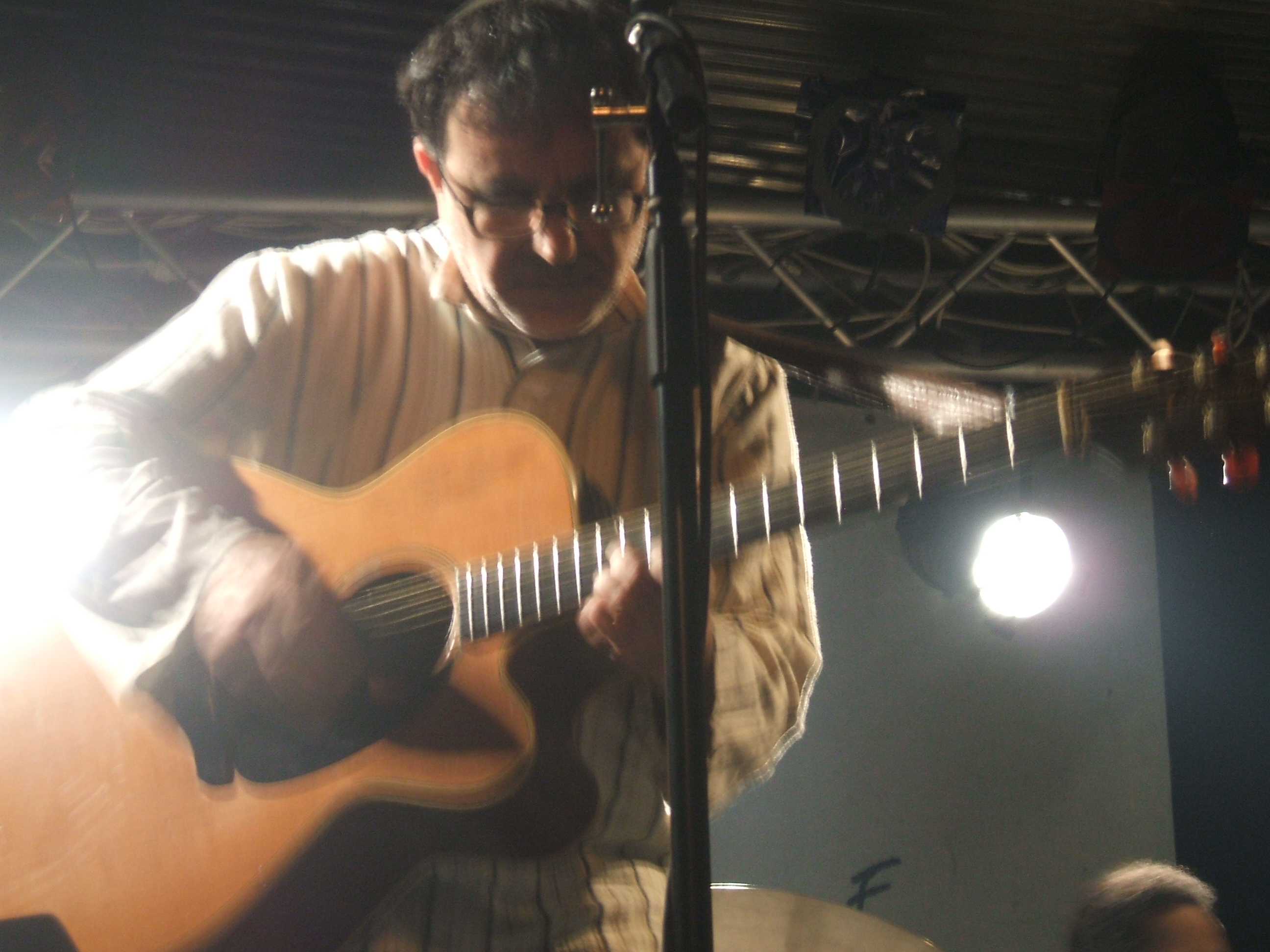- Ehud Banai
Infobox musical artist
Name = Ehud Banai

Img_capt =
Img_size = 200px
Landscape =
Background = solo_singer
Birth_name =
Born = birth date and age|1953|03|31
Died =
Alias =
Origin = flagicon|IsraelPetah Tikva ,Israel
Instrument =Guitar ,Singing
Voice_type =
Genre = Folk,Folk-rock ,Israeli folk
Occupation =
Years_active = 1980s–present
Label =
Associated_acts =
URL = [http://www.ehudbanai.co.il/ www.ehudbanai.co.il]
Notable_instruments =Ehud Banai ( _he. אהוד בנאי, born
March 31 1953 ) is anIsrael isinger andsongwriter .Biography
Banai was born in 1953 in
Jerusalem and moved toGivataim at the age of four. At the age of ten he learned to play thecello and listened toElvis Presley ,Cliff Richard and later theBeatles .In 1971 he was drafted to the
Israel Defense Forces and served in theNahal . In thekibbutz he learned to play the guitar. After his discharge, he moved toLondon , where he played in theLondon Underground for six months. It was during this period that he decided to become a musician. He returned to Israel and lived inRamat Gan and later inRosh Pina . In 1982 he formed a band with singer Avi Matos. He made several other attempts at a breakthrough during the following years. He tried out forShlomo Bar 's band, Habrera Hativit, but wasn't accepted. In 1986 Ehud and his band "Haplitim" ("the refugees") broke through, with the hit single "Ir Miklat" (city of refuge) and the rock-Opera "Mami".In 1987, Banai and the refugees released their self-titled debut, which is considered by many to be one of the best and the most important albums of
Israeli rock ,Cite news
last = Shalev
first = Ben
title = Soundtrack of their lives
work = Haaretz
accessdate = 2008-09-02
date = 2008-02-21
url = http://www.haaretz.com/hasen/spages/955999.html] with original mix of new-wave guitar rock with some oriental rhythms and sounds. Most of the album consisted ofprotest songs . The songs also included many Biblical subjects and allusions, such as thegolden calf andcities of refuge . Their follow-up, "Karov" ("closer"), released in 1989 had influences raging from early childhood in Jerusalem, traveling inEurope ,Bob Dylan , the Banai family's Afghani/Persian-Jewish background, to Jewish prayer andpiyutim , among others. He also released "Under the Jasmine Tree", an album of Persian folk tales as told by his father.Cite web
title = Ehud Banai
work = Mooma
accessdate = 2008-09-02
url = http://mooma.keshet-tv.com/Biography.asp?ArtistId=1164 he icon]During the 1990s Banai released 3 albums ("The Third" was released in 1992, "In a Little While" was released in 1996, and "Tip Tipa" was released in 1998). His latest studio album ("Ane' Li") was released in 2004. The song Blues Knaani (Canaanite blues) was written in memory of
Meir Ariel and Hayom (today) was written for his wife. A triple live album, "Mamshich Linso'a" ("Keep Moving") was released in October 2006.Ehud Banai writes the lyrics and composes the music for almost all of his own songs. Banai, for the greater part of his musical career, observed Jewish traditions, and even “returned” to Orthodox Jewish religious observance over the course of the early 2000s. Banai habitually scatters references to his connection to Jewish subjects throughout many of his songs. Ehud Banai is married to Odeliah, and they have three daughters.
Discography
*Ehud Banai and the Refugees (1987)
*Karov ("Close") (1989)
*Mitachat Siach HaYasmin (Under the jasmine tree), with Yaakov Banai (1989)
*Hashlishi ("The Third) (1992)
*Od Me'at ("Soon") (1996)
*Ane Li ("Answer Me") (2004)
*Mamshich Linsoa (keeps on driving) (2006)
*Shir Chadash (New Song) (2008)References
External links
* [http://www.ehudbanai.co.il/ Official website]
Wikimedia Foundation. 2010.
